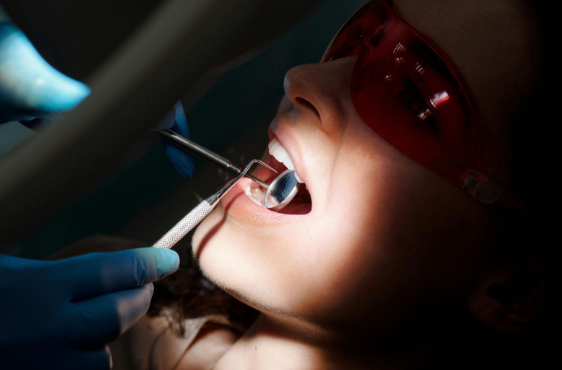Gateway Family Dental Blog
What Causes Swollen Gums?

When you see the tissue surrounding your teeth and gums begin to swell, it can be alarming. It could be just a temporary issue that will go away on its own, but there are other times when swollen gums are a sign of a serious problem.
In order to determine what is causing your swollen gums and whether or not any treatment is needed, it's important to know what causes these symptoms in the first place. Below we've listed some of the most common causes of swollen gums and how each might affect you:
What Causes Swelling of Gums?
Gums to the teeth are basically the foundation of a building. This pink and fibrous tissue holds the teeth firmly in place. So, without a doubt, gums are an essential component of oral health.
Factors like nutrient deficiency, hormones, and infections can cause the gums to swell and bulge. Swollen gums appear red, are sensitive, bleed easily, and can also cover parts of the teeth. Here are some of the common ways our gums can get damaged.
Aggressive Brushing
To achieve sparkling white teeth, we might resort to rough brushing techniques. But this vigorous and aggressive brushing does more harm than good.
While brushing, follow circular motions and be gentle. The back-and-forth movements of the brush can be harsh and damage the enamel of the teeth and the gums. Soft nylon brushes are the best to maintain oral health as they are gentle and non-irritating to sensitive gums.
Incorrect Flossing
Flossing should be done after brushing, as the bristles of your toothbrush will help loosen any food particles stuck in your gums. It’s a healthy practice, but the wrong method of flossing can damage your gums. Be mindful while flossing. Instead of pushing the floss harshly between the teeth, follow an up-down motion along the curve of a tooth for gentle and effective cleaning.
Gum Disease
Gum disease presents in two ways based on severity: mild gingivitis and severe periodontitis. Poor dental hygiene leads to plaque build-up on the teeth, which creates an optimal condition for bacteria to thrive. In turn, the bacteria infesting the plague causes the gums to swell.
The symptoms of gingivitis are mild: swollen and sensitive gums, gums bleeding upon brushing, bad breath, loose teeth, etc. But gingivitis can worsen and lead to more severe periodontitis if left untreated. This disease can cause the gums to become irritated, incredibly swollen, and bleed on their own. In the final stages, severe periodontitis can also lead to tooth loss.
Hormonal Fluctuations
During both pregnancy and menstruation, estrogen levels rise and progesterone falls, which can cause gum swelling that lasts for a few weeks after your period ends. This is normal, but if you have severe gum swelling or if it doesn't go away on its own within a month or two, call your doctor.
Stress is another common contributor to hormonal imbalances—and when your body's stress response kicks into overdrive (whether from work or other sources of anxiety), it may cause the same issues as other forms of hormone disruption, including gum swelling.
Infection
Fungi and viruses can cause mouth infections that lead to swollen gums. Herpes, for example, can cause acute herpetic gingivostomatitis, which affects gums and causes them to swell. Overgrowth of yeast in the mouth can also cause oral thrush, leading gums to swell.
Malnutrition
Malnutrition can lead to swollen gums. Your gums are a part of your immune system, and they help fight off infections. If you have malnutrition, it means that your body is not getting enough nutrients. This can happen in two ways: protein deficiency and vitamin deficiency.
Ulcers
Mouth ulcers and canker sores are often behind painful and swollen gums. They can develop on the gums or anywhere else in the mouth, and can be caused by bacteria, viruses, or fungi.
Chemotherapy
Chemotherapy and radiation treatments can cause the gums to become swollen. During treatment, it is important to care for your mouth to reduce the risk of infection, dry mouth and tooth sensitivity. This includes brushing at least two times a day with a soft-bristled brush and flossing daily before bedtime as well as using an oral rinse that contains fluoride.
It’s important that you don’t neglect your teeth and gums. It is likely that they will become more swollen if you do not have them checked regularly by a dental professional. The best way to prevent this problem is by maintaining good oral hygiene at home and visiting your dentist regularly for checkups.
Gateway Family Dentistry in Murfreesboro, Tennessee, offers several dental services to help you get the smile you deserve. Call us at (615) 962-8505, or contact us online to get started!




